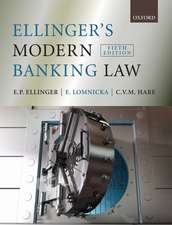Fault Lines of International Legitimacy
Editat de Hilary Charlesworth, Jean-Marc Coicauden Limba Engleză Paperback – 9 mai 2012
| Toate formatele și edițiile | Preț | Express |
|---|---|---|
| Paperback (1) | 398.92 lei 6-8 săpt. | |
| Cambridge University Press – 9 mai 2012 | 398.92 lei 6-8 săpt. | |
| Hardback (1) | 538.26 lei 6-8 săpt. | |
| Cambridge University Press – 24 feb 2010 | 538.26 lei 6-8 săpt. |
Preț: 398.92 lei
Nou
Puncte Express: 598
Preț estimativ în valută:
76.34€ • 81.63$ • 63.65£
76.34€ • 81.63$ • 63.65£
Carte tipărită la comandă
Livrare economică 17 aprilie-01 mai
Preluare comenzi: 021 569.72.76
Specificații
ISBN-13: 9781107404557
ISBN-10: 110740455X
Pagini: 418
Dimensiuni: 152 x 229 x 22 mm
Greutate: 0.56 kg
Editura: Cambridge University Press
Colecția Cambridge University Press
Locul publicării:New York, United States
ISBN-10: 110740455X
Pagini: 418
Dimensiuni: 152 x 229 x 22 mm
Greutate: 0.56 kg
Editura: Cambridge University Press
Colecția Cambridge University Press
Locul publicării:New York, United States
Cuprins
Acknowledgments; Contributors; Introduction Jean-Marc Coicard; Part I. From the History and Structure of International Legitimacy to Fault Lines in Contemporary International Politics: 1. Legitimacy, across borders and over time Jean-Marc Coicard; 2. Deconstructing international legitimacy Jean-Marc Coicard; 3. The evolution of international order and fault lines of international legitimacy Jean-Marc Coicard; 4. Intervention in a 'divided world': axes of legitimacy Nathaniel Berman; 5. From Berlin to Bonn to Baghdad: a space for infinite justice Vasuki Nesiah; Part II. The UN Security Council: Expression, Venue, and Promoter of International Legitimacy?: 6. Legal deliberation and argumentation in international decision making Ian Johnstone; 7. The UN Security Council, regional arrangements, and peacekeeping operations Nishkala Suntharalingam; 8. The Security Council's alliance of gender legitimacy: the symbolic capital of Resolution 1325 Dianne Otto; Part III. Legitimacy of International Interventions and Hierarchy of International Rights: 9. Cosmopolitan militaries and cosmopolitan force Lorraine Elliott; 10. Sovereignty, rights, and armed intervention: a dialectical perspective B. S. Chimni; Part IV. In Search of New Forms of International Legitimacy: Between Power and Principles: 11. Determining how the legitimacy of intervention is discussed: a case study of international territorial administration Ralph Wilde; 12. The legitimacy of economic sanctions: an analysis of humanitarian exemptions of sanctions regimes and the right to minimum sustenance Jun Matsukuma; Conclusion: the legitimacies of international law Hilary Charlesworth; Index.
Recenzii
“International relations scholars and practitioners have a long-standing concern with the legitimacy of political actions because it influences their occasions, their shape and their efficiency. Particularly since the Independent International Commission on Kosovo described NATO’s bombing of Serbia as inconsistent with the UN Charter and hence formally illegal but nevertheless legitimate, International lawyers have increasingly shared that concern with the knowledge that a wide split between legality and legitimacy, whatever its other consequences, is bound to heighten skepticism about the obligation to comply with international law. Thus the timing of this elegantly conceived and executed volume could hardly be more felicitous. The multiplicity of authors enriches the volume, for they illuminate probably better than any single author could, the various ways in which ‘legitimacy’ is, can, and should be understood. The editors deserve admiration for the depth, range, and coherence of this fine work.”
--Tom Farer, Dean, Josef Korbel School of International Studies, Denver University
“Legitimacy is unstable terrain. Fault lines mark the movement of its legal, normative and political tectonic plates: this results in release of pressure, some beneficial adjustment, and periodic shocks. It is this terrain – human rights, military intervention, peacekeeping, and international administration – that is mapped by a distinguished group of analysts. They have given us a very valuable addition to the growing literature on international legitimacy.”
--Ian Clark, ESRC Professorial Fellow and E H Carr Professor, Department of International Politics, Aberystwyth University
--Tom Farer, Dean, Josef Korbel School of International Studies, Denver University
“Legitimacy is unstable terrain. Fault lines mark the movement of its legal, normative and political tectonic plates: this results in release of pressure, some beneficial adjustment, and periodic shocks. It is this terrain – human rights, military intervention, peacekeeping, and international administration – that is mapped by a distinguished group of analysts. They have given us a very valuable addition to the growing literature on international legitimacy.”
--Ian Clark, ESRC Professorial Fellow and E H Carr Professor, Department of International Politics, Aberystwyth University
Descriere
This book examines the features and functions of international legitimacy and how these change over time.
















